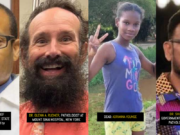By Sueann Wickham
In the depths of Guyana’s flourishing developments and abundant resources lies a somber reality: the pervasive and devastating practice of child labour. Last week, Guyana Standard explored some of the factors that leave many of our children ensnared by this cruel cycle.
Today, we will examine another significant contributor to this tragedy—the stark absence of comprehensive family planning.
Brace yourself as we unveil the connection between the lack of family planning and the heart wrenching persistence of child labour.
Family planning, which can be referred to as the practice of controlling the number and spacing of children through contraception or voluntary sterilization, remains alarmingly unfamiliar to many in Guyana. Unaware of its importance, many individuals conceive more children than they can afford, inadvertently propelling some of these children into the tragic world of child labour.
While reports specifically focused on the lack of knowledge about family planning in Guyana are scarce, a November 2022 study by the United Nations Office for South-South Cooperation highlighted the consequences of inadequate family planning in the country.
While the report placed the spotlight on adolescent pregnancies in Guyana, it did note that early and unwanted pregnancies are prevalent, particularly among indigenous women and those from lower socioeconomic backgrounds. Limited availability and access to quality sexual and reproductive health information and services for adolescents exacerbate this issue. The report did note also that some efforts have been made by the Guyana government to address this pressing concern.
Globally, data and analysis reveal that the absence of family planning contributes to larger family sizes, placing increased economic strain on households. When families are burdened with more children than they can adequately support, their ability to meet basic needs is compromised. Financial pressures can then drive families to resort to child labour as a means of generating income.
Furthermore, the absence of family planning results in closely spaced or high-risk pregnancies for women, thereby negatively impacting their well-being. Such circumstances hinder their engagement in paid employment or their ability to effectively care for their children.
It is crucial also to acknowledge the stigma that often surrounds family planning, thereby deterring individuals from utilizing available resources. In fact, the United Nations Population Fund recently highlighted how traditional beliefs and attitudes contribute to this stigma. It noted for example that there are erroneous notions which falsely associate education on family planning with the encouragement of early sexual behavior. Other misguided beliefs equate having numerous children with masculinity and success or prescribe a woman’s primary role as that of a wife and mother. The UN body noted that these ingrained attitudes restrict essential information about individuals’ bodies and limit their ability to make informed choices about when and how many children they wish to have.
In Guyana, there are sadly many persons who are unaware of existing family planning facilities and services. One key entity in this regard is the Guyana Responsible Parenthood Association (GRPA). It is a leading non-governmental provider of sexual and reproductive healthcare in the country, and offers integrated services encompassing gynecological examinations, contraception distribution, cervical cancer screening, abortion services, and STI testing and treatment.
The Ministry of Health provides Maternal and Child Health Services, which encompass antenatal, intranatal, and postnatal care, including family planning counseling and access to contraception.
Additionally, the Advancing Partners & Communities (APC) supports the expansion of Community-Based Family Planning (CBFP) services in Guyana while aiming to make a full range of modern family planning methods readily available at the community level.
No matter which way we look at this subject, it is an indisputable fact that child labour, an abhorrent violation of children’s rights, undermines their well-being, robs them of education and opportunities, and perpetuates cycles of poverty.
Addressing this complex issue no doubt necessitates a multi-faceted approach, with effective family planning initiatives serving as a critical component.
While the lack of family planning indirectly contributes to child labour through economic and health factors, it is important to recognize that child labour is a multifaceted issue influenced by various social, economic, and cultural factors. Comprehensive strategies that address poverty, education, social protection, and access to quality healthcare are essential in combating child labour effectively.
Guyana Standard wishes to firmly reiterate its stance that child labour is an egregious violation of children’s rights. By promoting education on family planning and fostering sustainable communities, Guyana, the world’s fastest growing economy would be well on its way to tackling this societal ill successfully.













